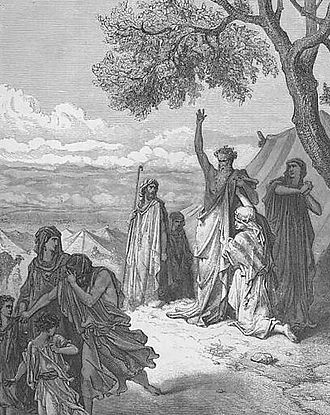Atlantic slave trade




Atlantic Slave Trade
The Atlantic Slave Trade, also known as the Transatlantic Slave Trade, was a centuries-long period of the trade of slaves across the Atlantic Ocean from the African continent to the Americas. This trade primarily involved the forcible transportation of African people to the colonies of the European powers in North and South America, making it one of the most significant and devastating aspects of world history due to its impact on the African continent and its diaspora.
Origins[edit]
The origins of the Atlantic Slave Trade can be traced back to the 15th century, with the Portuguese exploration of the African coast. The demand for labor in the newly colonized lands of the Americas, coupled with the decline of the indigenous populations due to diseases and harsh working conditions, led European powers to turn to Africa as a source of labor.
Trade Mechanics[edit]
The trade involved several stages, known collectively as the Triangular Trade. European goods, such as guns, textiles, and alcohol, were traded for African slaves, who were then transported across the Atlantic (the Middle Passage) under brutal conditions to the Americas. There, they were sold to work in plantations, mines, and households. The ships would then return to Europe with goods produced by slave labor, such as sugar, cotton, and tobacco.
Impact[edit]
The impact of the Atlantic Slave Trade was profound. It led to the forced displacement of an estimated 12 to 15 million African people, the decimation of African societies, and the establishment of racially based chattel slavery in the Americas. The demographic, social, and economic effects of the slave trade were felt across continents and generations.
Abolition[edit]
The movement to abolish the Atlantic Slave Trade began in the late 18th century, led by abolitionists in Britain, the United States, and elsewhere. The British Parliament passed the Slave Trade Act 1807, making the trade illegal across the British Empire, followed by the United States Congress's Act Prohibiting Importation of Slaves in 1808. The trade continued illegally for many years, but the abolitionist movement eventually led to the end of legal chattel slavery in the Americas.
Legacy[edit]
The legacy of the Atlantic Slave Trade is still felt today. It has left deep social, economic, and racial divides and has been a key factor in the diaspora of African cultures across the Americas. Efforts to address the historical injustices and the ongoing impact of slavery include reparations debates, memorialization projects, and educational initiatives.
Ad. Transform your life with W8MD's Budget GLP-1 injections from $49.99


W8MD offers a medical weight loss program to lose weight in Philadelphia. Our physician-supervised medical weight loss provides:
- Weight loss injections in NYC (generic and brand names):
- Zepbound / Mounjaro, Wegovy / Ozempic, Saxenda
- Most insurances accepted or discounted self-pay rates. We will obtain insurance prior authorizations if needed.
- Generic GLP1 weight loss injections from $49.99 for the starting dose of Semaglutide and $65.00 for Tirzepatide.
- Also offer prescription weight loss medications including Phentermine, Qsymia, Diethylpropion, Contrave etc.
NYC weight loss doctor appointmentsNYC weight loss doctor appointments
Start your NYC weight loss journey today at our NYC medical weight loss and Philadelphia medical weight loss clinics.
- Call 718-946-5500 to lose weight in NYC or for medical weight loss in Philadelphia 215-676-2334.
- Tags:NYC medical weight loss, Philadelphia lose weight Zepbound NYC, Budget GLP1 weight loss injections, Wegovy Philadelphia, Wegovy NYC, Philadelphia medical weight loss, Brookly weight loss and Wegovy NYC
|
WikiMD's Wellness Encyclopedia |
| Let Food Be Thy Medicine Medicine Thy Food - Hippocrates |
Medical Disclaimer: WikiMD is not a substitute for professional medical advice. The information on WikiMD is provided as an information resource only, may be incorrect, outdated or misleading, and is not to be used or relied on for any diagnostic or treatment purposes. Please consult your health care provider before making any healthcare decisions or for guidance about a specific medical condition. WikiMD expressly disclaims responsibility, and shall have no liability, for any damages, loss, injury, or liability whatsoever suffered as a result of your reliance on the information contained in this site. By visiting this site you agree to the foregoing terms and conditions, which may from time to time be changed or supplemented by WikiMD. If you do not agree to the foregoing terms and conditions, you should not enter or use this site. See full disclaimer.
Credits:Most images are courtesy of Wikimedia commons, and templates, categories Wikipedia, licensed under CC BY SA or similar.
Translate this page: - East Asian
中文,
日本,
한국어,
South Asian
हिन्दी,
தமிழ்,
తెలుగు,
Urdu,
ಕನ್ನಡ,
Southeast Asian
Indonesian,
Vietnamese,
Thai,
မြန်မာဘာသာ,
বাংলা
European
español,
Deutsch,
français,
Greek,
português do Brasil,
polski,
română,
русский,
Nederlands,
norsk,
svenska,
suomi,
Italian
Middle Eastern & African
عربى,
Turkish,
Persian,
Hebrew,
Afrikaans,
isiZulu,
Kiswahili,
Other
Bulgarian,
Hungarian,
Czech,
Swedish,
മലയാളം,
मराठी,
ਪੰਜਾਬੀ,
ગુજરાતી,
Portuguese,
Ukrainian
